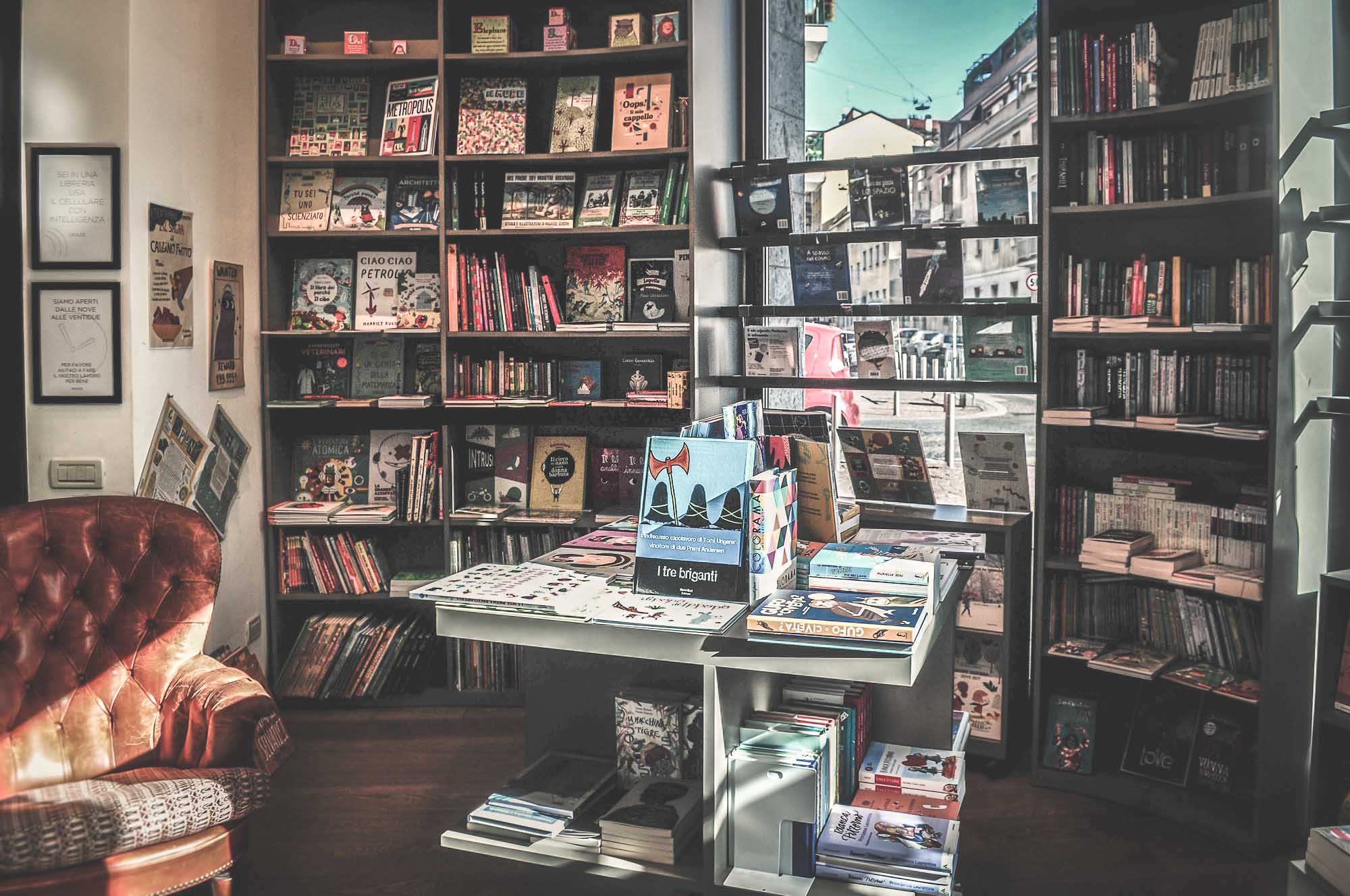Is it a bookshop, a café or a gallery? The answer is “all of the above.” Gogol & Company is one of those new cultural concepts that have developed all around Milan and spread to the rest of Italy in the last decade. A vast book selection, a list of dishes that will have you drool, a calendar packed with events and initiatives focused on art, music and good food.
Hi Marta, what’s the story behind the bookshop?
Eight years ago, Danilo and Tosca had the idea of creating this place and, as of today, they’re still the owners. I’ve been working here for three years and before that, I was a regular customer at the bookshop.
At the time, Danilo worked at the Utopia bookshop, where he learned how to be a bookseller and where he used to fantasize about opening his own business with Tosca. There are twelve of us working here today with one principle: to share ideas and creativity.

What would you say it’s the best thing on the café menu?
The best thing in here is hummus: it’s a special recipe belonging to Chaminda, who has been working here since the bookshop opened and whose trademark has always been this special hummus. As for breakfast… a classic: cappuccino and croissant.
Would you tell us the reason behind the location? It is one of the most active and crowded streets of Milan, but it’s far from the center?
Via Savona is long and although Gogol seems to be in a remote part of Milan, people cross the city to come here. When the bookshop opened, the neighborhood was not as it is today. It was right near Lorenteggio, which was considered to be quite working-class. Anyway, this is an area for creatives now – in between architects, designers and people who work in fashion.
How did long-time residents of the neighborhood react to your presence here?
There are young people from the neighborhood who always come here, even if it’s just to sink into one of our comfy armchairs and look at the ceiling; we lend them books because we want them to read. There are intellectuals looking for specific volumes. There are curious people, youngsters, professionals working here all day and people who just want to stop by for a Spritz or for breakfast.
On Saturday morning especially, we have many families, moms and children reading on the armchairs. The ones I prefer are the old ladies from the neighborhood, they come during the week, sometimes just for a chat. I try and suggest them some books, but they’re really hard to please.
What was the weirdest thing you’ve ever been asked?
People ask me all kind of weird things. The funniest thing is the clues they come here with, some obscure or very vague hints about the book they’re looking for, and I have to complete the puzzle to get the right volume. Occasionally, I even get it.
Has the role of the bookseller changed?
I am not sure if the job of a bookseller has necessarily changed over the years. Here, for example, we’ve always had a different way of working and evolving. We collaborate with independent authors and publishers. The most important thing is “what’s happening in the shop” and what we’re concerned about is actually talking to people.
We’ve always been loyal to the vision of connection between different worlds: books, music, food. There’s a different approach behind it. You have to invest in culture and in your job in order for it to evolve.

What does it mean being a bookseller in Milan in 2018?
This is my dream job, the thing I wanted to be when I was a child and I had forgotten for many years. I had a wish, I wanted to be a bookseller. Our job is very important: we make culture, we don’t only sell books. We make it through books, through their careful selection, which is what makes a difference.
The bookshop often turns into a gallery available to illustrators, photographers etc. How does this work?
Tosca and I, we take care of the exhibitions, and we’re very demanding. Every project we choose to bring into the bookshop, we love. We organize around three or four exhibits per year and each of them gets special care.
Two years ago, we were discovered by this Japanese photographer who came all the way to Milan to organize an exposition, leaving her photographs here for ten days; it was a unique experience. Next month, we’ll organize Isabella Sommati’s exhibition. She’s a photographer and designer based in Milan and she realized her work following a female football team inside and outside the locker room.
What will your future hold?
I think we’ll transform a lot, Gogol & Company will go past its walls. In this very moment we’re extremely balanced and after this, the only thing that can happen is a big change.









